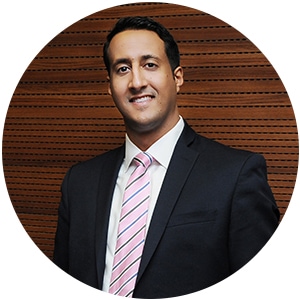Narmo Capital’s founding partner and CEO says family businesses in the Gulf have good growth prospects for the future as they transition from an older to a younger generation.

Global Finance: It has been a challenging investment climate. Has Narmo managed to increase both its assets under management and its client base?
Fahad AlOmran: Narmo Capital, through its affiliates, has increased both its AUM and its client base over the past few years. Traditionally, we have been the family office for the Al Omran Group; but due to our expertise and network, we now work with several prominent family clients in the Gulf Cooperation Council. We have not seen any reduction in flows over the last few years, as strong businesses in the region have continued to generate good cash flow.
GF: What assets does the company currently favor?
AlOmran: Narmo focuses on three asset classes: beta strategies that are market correlated, alpha long, and short-duration strategies that are nonmarket correlated. Beta strategies focus on low volatility and generating yield through exchange-traded funds. Alpha in general includes exposure to alternative investments; short-duration alpha includes risk arbitrage and M&A exposure. Longer duration includes investment in venture capital; and we currently lean toward fintech, Big Data, and machine-learning strategies. We are currently cautious about commodities and refrain from increasing our exposure until we see a clear repositioning in the market.
GF: What are the challenges for family offices in the region?
AlOmran: The family-office concept is still in its infancy in the Middle East, and many groups are not familiar with the concept. However, high net worth families are looking to achieve a higher risk-adjusted return, reduced costs and increased liquidity. Educating family groups in the family-office concept is sometimes challenging, but very fruitful.
The main hurdles for family offices are designing the most suitable structure, defining an appropriate asset allocation and succession planning in family-owned groups. The transition from generation to generation requires attention, as it is a big risk. There will be a high percentage of generational transitions in family groups over the next 10–15 years.
GF: What are the growth prospects for the family-office concept?
AlOmran: We believe there are very good prospects. There will be a shift from passive to active family offices. International education and increased financial knowledge through the new generation will help generate this shift. Success factors for family offices include a willing and capable next generation, an older generation prepared to give up control, trust with the family office, functioning relationships within the family itself, and a sensible governing structure.
GF: How do you see 2017 in terms of investment opportunities, strategy and outlook?
AlOmran: Political uncertainty will continue, with Brexit negotiations, and with elections in France and Germany. Despite risks, global growth will continue. We expect equities to outperform government bonds. Government bond yields will increase further, US corporate earnings will be supported by stronger growth, particularly in US equities. Emerging markets will be influenced by the degree to which the dollar continues to strengthen. In regards to Europe, we believe pessimism has been priced in and slow growth is forecast.



